|
One of the preoccupations of Canadians over the last few years is to look south of the border and wonder aloud about what’s happening to our neighbours in the United States. We do it with a combination of angst and anger – or in more typically Canadian terms, handwringing with a bit of finger wagging. The news this week from Uvalde, Texas, was horrific: innocent school children slaughtered in yet another mass shooting event. News of the murders was immediately followed by the now familiar and uniquely American political debate about gun control – and the mystifying (at least to we Canadians) refusal by politicians to do the right thing. And yet…
As we wag our fingers, let’s remember the killings in Texas happened a few days before the first anniversary of the announcement by the Tk'emlúps te Secwépemc that they had located more than 200 potential unmarked graves of children on the grounds of the former Kamloops Indian Residential School. As Kisha Supernant, Director of the Institute of Prairie and Indigenous Archaeology at the University of Alberta, wrote in an excellent article for us this week, we know now there are 4,130 confirmed names of children who died while at Indian Residential Schools in Canada. The actual number is likely much higher.
Children dying at schools is the most unimaginable horror that a society can inflict on itself. While Canadians look south at the tragedy in Texas and wonder why the carnage by firearms can’t be stopped, let us also ask tough questions and seek the truth about what’s happened at schools here. For your weekend reading, I’ve assembled some stories from across the global network of The Conversation on the latest debates about gun control in the United States, as well as some of our own stories about the Indian Residential School crisis. And if you haven’t already listened to our recent podcast on the anniversary of the Kamloops discovery, try to
find time to do it this weekend.
We’ll be back in your Inbox on Monday.
|
Weekend Reads: Why?
|
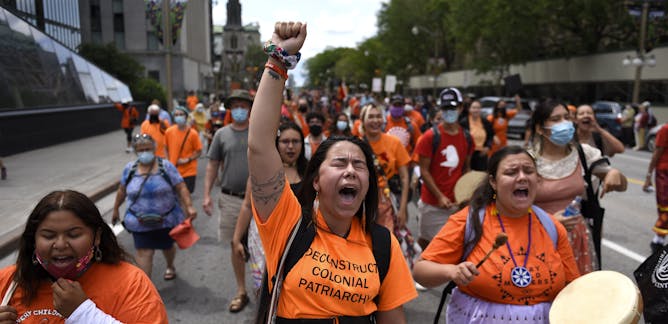
Kisha Supernant, University of Alberta
As the number of unmarked graves found will likely only increase over the months and years to come, we can’t forget that every child matters.
| |
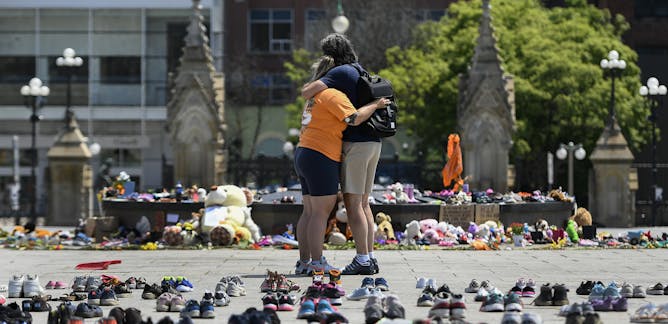
Vinita Srivastava, The Conversation; Haley Lewis, The Conversation
In today’s episode of Don’t Call Me Resilient, we take a look at what has happened since the unmarked graves of 215 Indigenous children were found in Kamloops B.C.
|
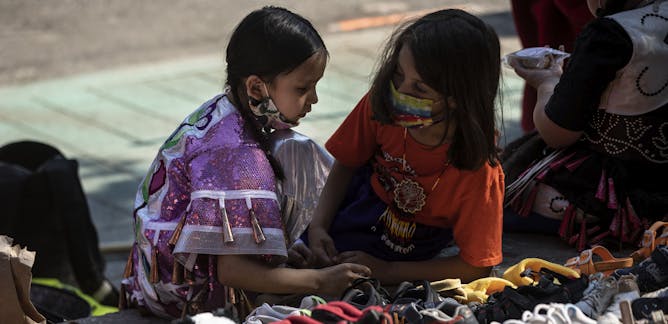
Beverly Jacobs, University of Windsor
An Indigenous lawyer makes the case that what happened to Indigenous children who went to residential schools is genocide and the case should be tried by the International Criminal Court.
| |
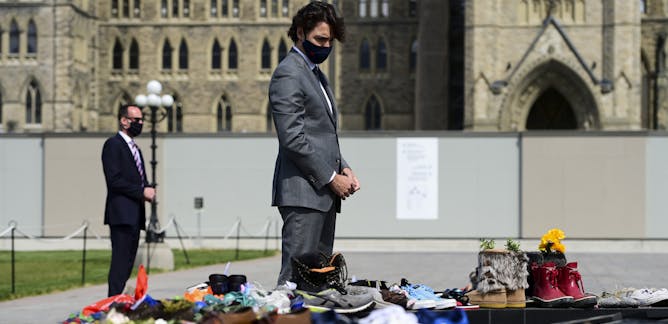
David MacDonald, University of Guelph
Canada has officially recognized eight genocides that have happened around the world. It has not done the same for its own treatment of Indigenous children who they sent to Indian Residential Schools.
|
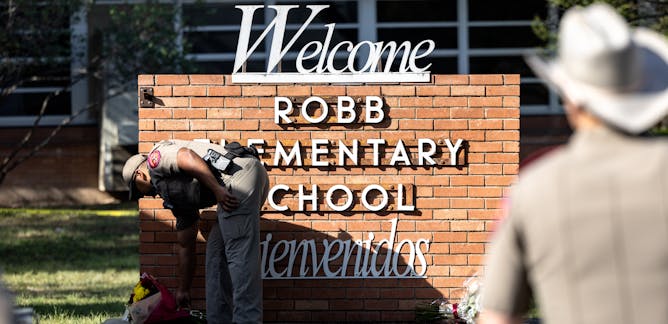
Arash Javanbakht, Wayne State University
People who are directly affected by mass shootings may develop PTSD and depression. But those who are indirectly exposed to these tragedies can also experience profound and long-lasting grief.
| |
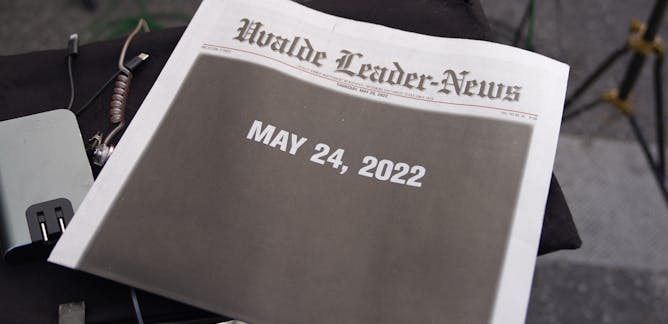
Monika L. McDermott, Fordham University; David R. Jones, Baruch College, CUNY
The nature of elected office combines with the lasting priorities of public opinion to put gun control on the back burner, even in times when it does get massive public attention.
|

Michael Siegel, Tufts University
A closer look at firearms sales reveals some interesting trends that should be part of America’s ongoing conversation about the root causes of gun violence.
| |
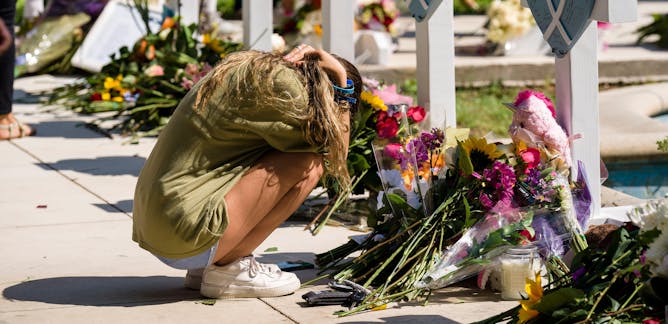
Peter Squires, University of Brighton
Gun ownership is not the only factor that needs considering to tackle gun crime, an expert says.
|
|
|
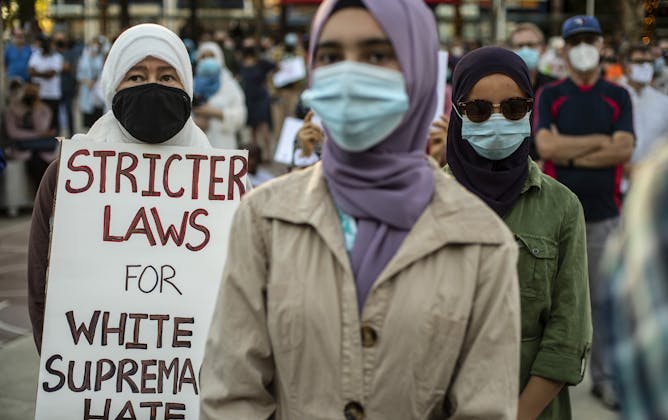
Vinita Srivastava, The Conversation; Vaishnavi Dandekar, The Conversation
In today’s episode, we take a look at some ways lawmakers have legalized Islamophobia through niqab bans and other restrictive policies.
|
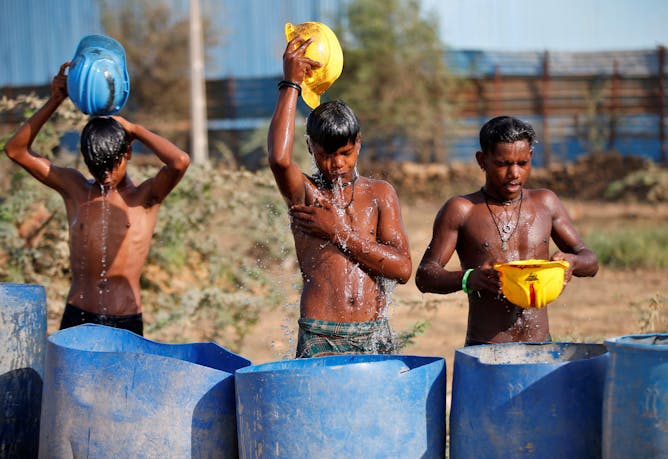
Daniel Merino, The Conversation; Gemma Ware, The Conversation
And after India banned wheat exports in May due to the high temperatures, we find out how vulnerable crops are to extreme heat. Listen to The Conversation Weekly podcast.
|